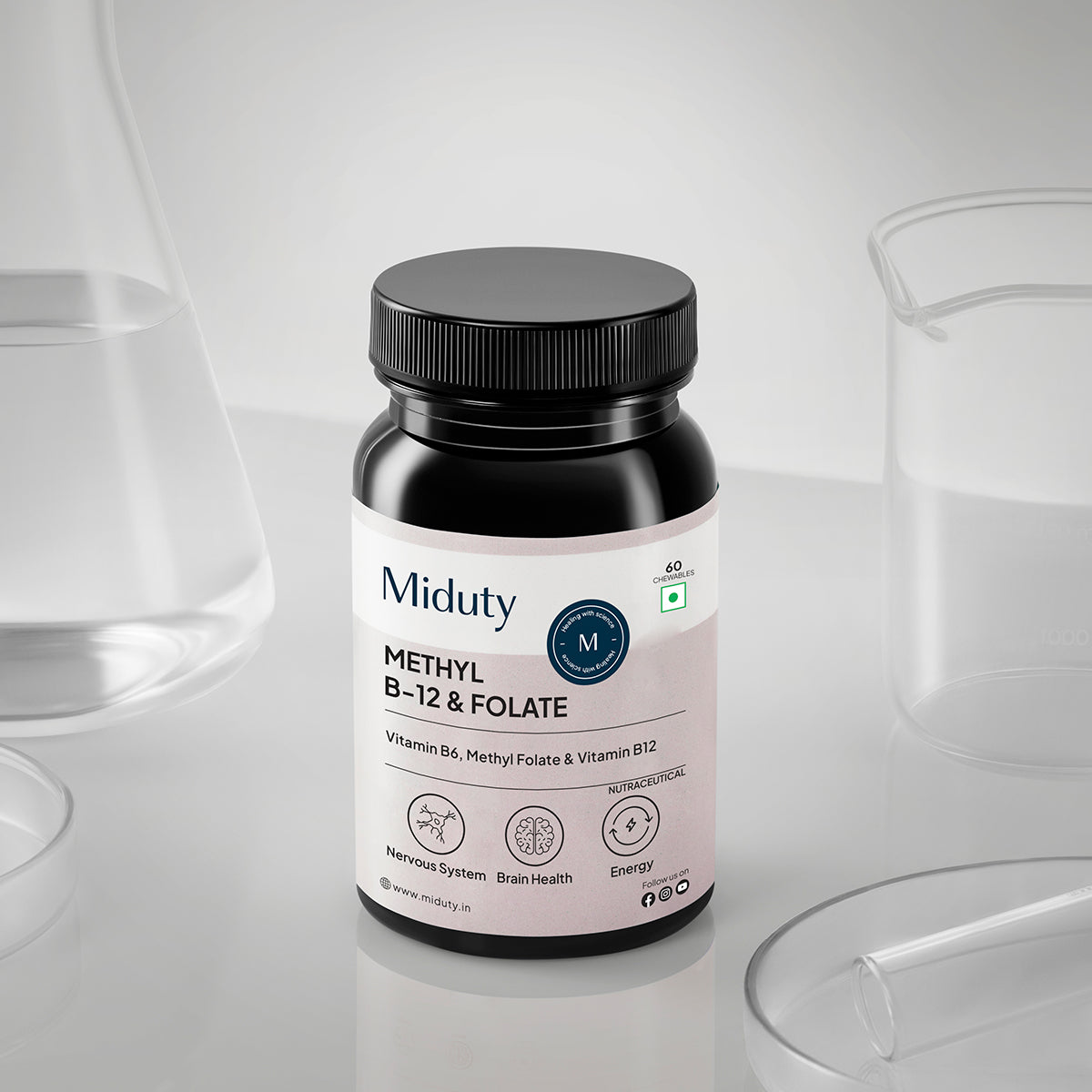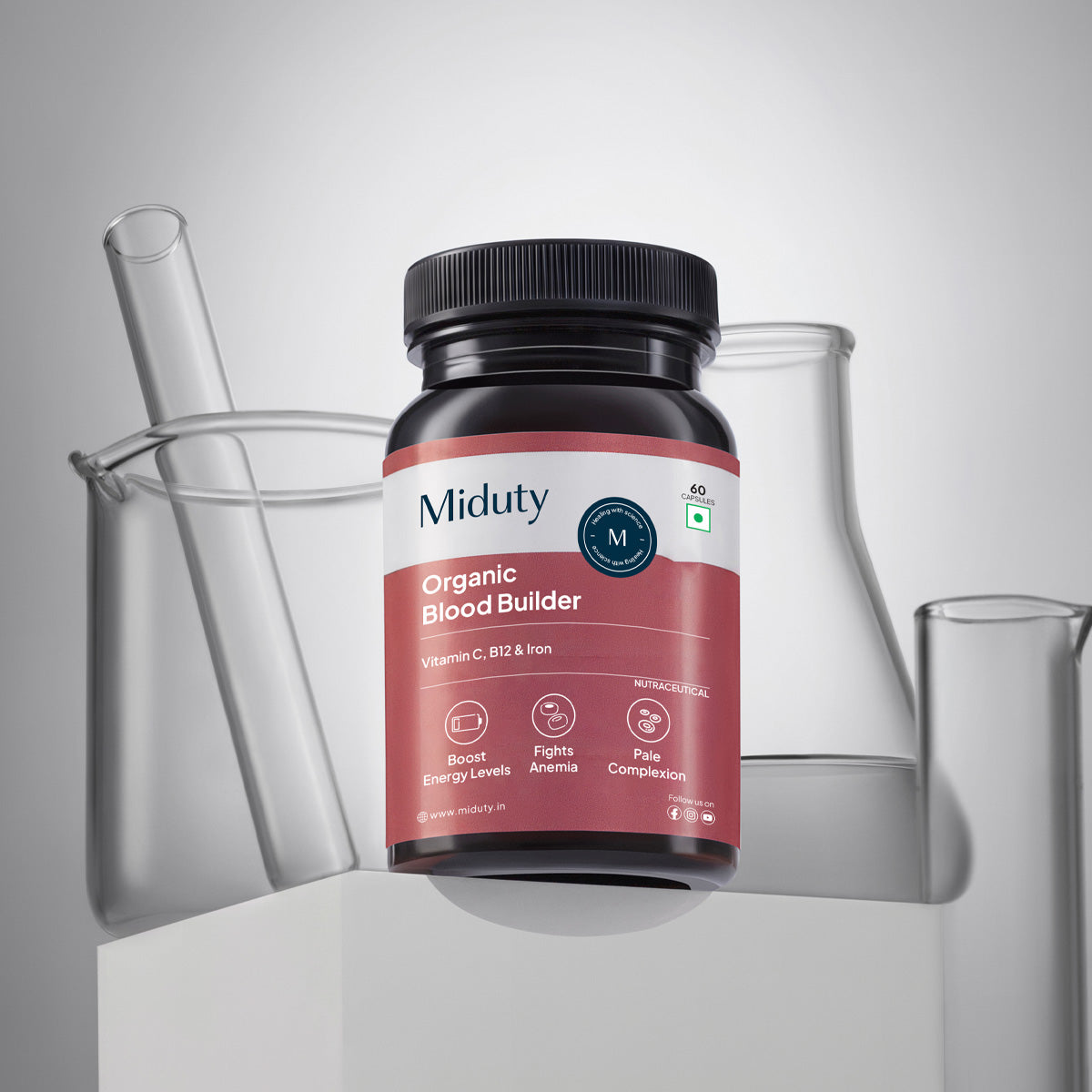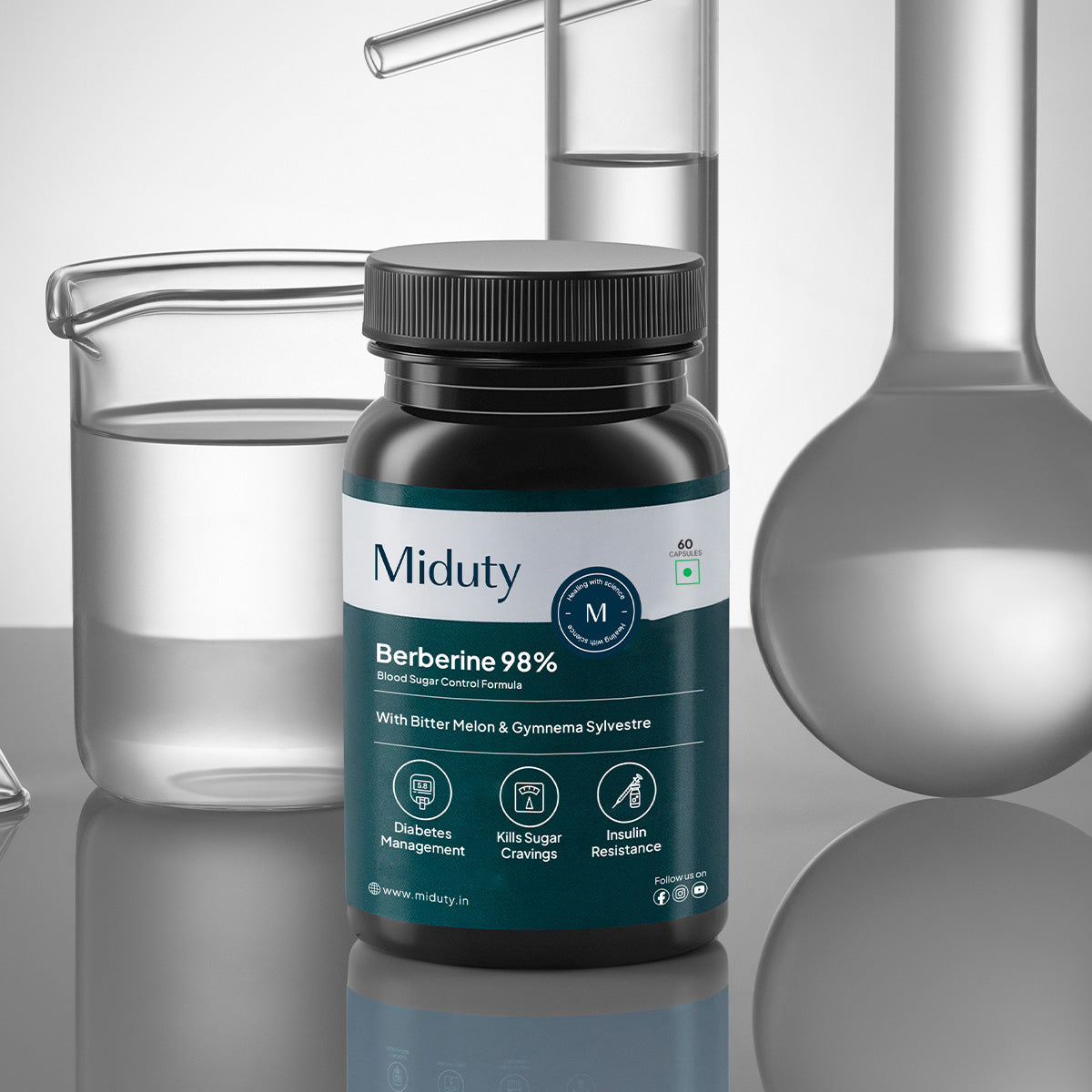
8 Best Essential Oils for Hair Growth: Natural Solutions for Fuller Hair
Key Takeaways
1. Not only does peppermint oil create a refreshing tingle, but it also enhances blood circulation, acting like a mini workout for your hair follicles, making them healthier and stronger from the root up.
2. Rosemary is the Natural 'Rogaine'. Studies suggest that rosemary oil may match the effects of commercial hair-growth treatments like minoxidil-without the harsh chemicals. Your hair growth goals may be just a few drops away!
3. Besides soothing stress, lavender oil can actually increase the number of hair follicles, leading to a fuller head of hair. Less stress, more growth-lavender gives you the best of both worlds!
4. Packed with natural compounds that mimic estrogen, Clary Sage supports hair health in a way that's particularly beneficial for hormonal hair thinning or loss, making it ideal for anyone experiencing shedding.
5. By supporting your scalp's natural pH, oils like cedarwood and tea tree help maintain oil production, which can prevent both dryness and excessive oiliness. This means healthier growth and less scalp irritation over time!
Introduction
Are you dreaming of thick, luscious hair, or are you struggling with thinning locks? If so, essential oils might just be the magical solution you've been searching for! While store-bought products often promise the moon, essential oils offer a time-tested, holistic approach to hair care that delivers-without the harmful chemicals.
Imagine infusing your hair with the goodness of nature! Packed with potent active compounds, essential oils can nourish your scalp, strengthen your strands, and encourage your hair's natural growth cycle, revealing a fuller, healthier mane over time.
So, which essential oils should you be reaching for? In this exciting guide, we'll dive into the top eight essential oils known for promoting hair growth, along with some tips and tricks to use them effectively. Whether you're just starting your journey with essential oils or looking to expand your collection, this list will serve as your roadmap to achieving that vibrant, healthy hair you've always wanted!
Get ready to embrace your best hair days ahead!
8 Best Essential Oils for Hair Growth
#8 Rosemary Essential Oil

Rosmarinus officinalis L., commonly known as rosemary, is an evergreen shrub native to regions around the Mediterranean Sea and the sub-Himalayan areas. Rosemary oil is celebrated in hair care due to its circulation-boosting properties, which are linked to stronger hair growth. A 2015 study found that rosemary oil was as effective as minoxidil, a popular hair growth treatment, but with fewer side effects like scalp itching. Other research has also explored its use for alopecia when combined with other essential oils. [1][2]
Benefits:
- Increases blood circulation to hair follicles, promoting faster growth.
- Strengthens hair strands, reducing breakage.
- Balances oil production, which can improve scalp health and reduce dandruff.
How to Use?
- Dilute 5 drops in a tablespoon of coconut or olive oil.
- Massage into the scalp, leave for at least 30 minutes, then wash with a gentle shampoo.
When to Use?
- Use it twice a week for best results. Overuse can lead to scalp sensitivity.
Who Should Avoid It?
- Individuals with scalp conditions like psoriasis should consult a dermatologist first, as essential oils might irritate sensitive skin.
Caution: Avoid eye contact with essential oils; if contact occurs, rinse with cold water. To prevent scalp irritation, dilute rosemary oil with a carrier oil before applying. Pregnant or breastfeeding individuals should consult a doctor before using rosemary or other essential oils.
#7 Peppermint Essential Oil

Peppermint (Mentha piperita), a plant originally native to Europe, is well-known for its properties as a digestive aid and stomach relaxant. In addition to these uses, some individuals have turned to peppermint essential oil as a natural remedy for hair loss. This interest may stem from the presence of menthol in the oil, which acts as a vasodilator, enhancing blood circulation. Hair loss, particularly in conditions like male and female pattern baldness, is often associated with insufficient blood flow to hair follicles. By improving circulation through the application of peppermint oil, there is potential for stimulating hair growth and mitigating some forms of hair loss. [3][4]
Benefits:
- Increases blood flow, supporting stronger hair roots.
- Offers a cooling, tingling sensation that can reduce inflammation and itchiness.
- Balances pH levels on the scalp, reducing excess oil.
How to use it?
Direct Scalp Massage:
- Combine a few drops of peppermint oil with about one tablespoon of your preferred scalp massage oil. If you don't have a specific scalp oil, you can use common household oils like coconut, jojoba, or shea butter oil.
- Massage the mixture gently into your scalp. You might experience a tingling, minty sensation.
- Leave the treatment on for 15 to 20 minutes, then wash your hair with shampoo. If the menthol sensation becomes too intense, dilute it further with additional oils or rinse your scalp immediately with shampoo.
In Your Shampoo and Conditioner:
- Add peppermint oil directly to your shampoo and conditioner bottles. A good rule of thumb is to use about five drops per ounce of shampoo or conditioner.
- Use your products as you normally would, allowing the peppermint oil to enhance the benefits of your hair care routine.
When to Use?
- You can apply the peppermint oil treatment once or twice a week to see the best results.
Who Should Not Use?
- Avoid using peppermint oil if you have sensitive skin or scalp conditions, as it may irritate. It's also advisable to perform a patch test before use if you haven't used peppermint oil before.
Caution: Be aware that products simply labeled with a peppermint scent do not provide the same benefits. These often lack the essential oil and sufficient levels of menthol needed for therapeutic effects. Only distilled peppermint essential oils contain the high concentrations of menthol required for effectiveness.
#6 Lavender Essential Oil

Lavandula species, commonly known as lavender, is a flowering plant found throughout Europe and the Mediterranean. It offers numerous health benefits and is widely utilized in herbal medicine, cosmetics, perfumes, and food products. Lavender essential oil has gained popularity for its potential to promote hair growth. Studies show that the oil works best when it penetrates the skin. While it shows promise for conditions like pattern baldness and alopecia, more human studies are needed. However, it is generally safe for people to use lavender oil on their hair. [5]
Benefits:
- Known for stress relief, which can prevent hair thinning.
- Antibacterial properties keep the scalp clean and free from dandruff.
- Improves blood circulation, which can support hair growth.
How to Use Lavender Oil for Hair Growth?
- Dilute lavender oil with a carrier oil (like jojoba or coconut) in equal parts. Apply to the scalp after bathing, leave for 5-10 minutes, and rinse or leave overnight for maximum benefits. Use 1-7 times a week.
- Incorporate 5 drops of lavender oil per ounce into your shampoo or conditioner, or mix 2-3 drops into a dollop before applying. Use as you normally would.
- Use a commercial hair mask with lavender essential oil or create your own using DIY recipes. Apply once a week for added nourishment.
When to Use Lavender Oil?
- Use lavender oil after bathing or showering for best absorption.
- Apply lavender-infused products as part of your regular hair care routine.
Who Should Not Use Lavender Oil?
- Avoid using lavender oil if you have sensitive skin or allergies to mint or lavender.
- Pregnant or breastfeeding individuals should consult with a healthcare provider before using essential oils.
- If you have a history of hormonal issues, it's advisable to seek medical advice, as some essential oils can have hormonal effects.
#5 Tea Tree Oil

Tea tree oil is derived from the leaves of the tea tree (Melaleuca alternifolia), native to Australia, and has been used for centuries by Aboriginal peoples for wound care and infection treatment. Today, it is a popular ingredient in shampoos and soaps, known for its strong antimicrobial properties that combat bacteria, viruses, and fungi. Its antifungal qualities can help manage dandruff and soothe scalp irritations, including inflammation from conditions like psoriasis. [6]
Benefits:
- Clears blocked hair follicles to stimulate new hair growth.
- Reduces dandruff and flaking, creating a healthier environment for hair.
- Has natural antifungal and antibacterial effects, making it great for scalp health.
How to Use?
- Always dilute tea tree oil before applying it to your scalp. Mix it with a carrier oil, such as coconut oil.
- If you find it difficult to wash the oil mixture out of your hair, consider diluting it with aloe vera or apple cider vinegar.
- Alternatively, you can incorporate tea tree oil into your regular shampoo.
When to Use?
- Start with a 5% concentration when creating your own tea tree oil solution, which means using 5 milliliters (mL) of tea tree oil per 100 mL of the carrier substance.
- You can also opt for anti-dandruff shampoos that already contain tea tree oil.
Who Should Not Use?
- Avoid applying undiluted tea tree oil directly to your scalp.
- Individuals with sensitive skin or allergies to tea tree oil should refrain from using it, even in diluted forms, without consulting a healthcare professional.
#4 Cedarwood Essential Oil

Cedarwood essential oil is extracted from the bark, needles, leaves, and berries of cedar trees. Known for its earthy aroma, it has potential benefits for hair, skin, and relaxation. Cedarwood oil is commonly available in pure form but is also found in products like insect repellents, colognes, shampoos, and deodorants. [7][8]
Benefits:
- Helps to regulate sebum production, preventing scalp oiliness or dryness.
- Strengthens hair roots, reducing breakage.
- Antibacterial properties support a healthier scalp.
How to Use Cedarwood Essential Oil for Hair Growth?
- Mix 5-6 drops of cedarwood oil with a tablespoon of carrier oil, like jojoba or coconut oil.
- Massage the blend into your scalp gently for about 5-10 minutes to encourage blood flow.
- Leave on for 20-30 minutes before washing with a gentle shampoo.
When to Use?
- Once or twice a week is recommended to support scalp health and hair strength without irritating.
- Evening applications work well, allowing you to rinse and enjoy the calming scent as part of your nighttime routine.
Who Should Avoid Using Cedarwood Oil?
- Individuals with sensitive or allergy-prone skin should perform a patch test first, as it may irritate.
- Those with scalp conditions like eczema or psoriasis should consult a dermatologist before using essential oils to avoid potential irritation.
#3 Clary Sage Oil

Clary sage oil is a powerful essential oil that supports hair growth by improving scalp circulation and balancing sebum production. Its natural phytoestrogens can help strengthen hair follicles, reducing breakage and promoting thicker, healthier hair.
Benefits:
- Contains phytoestrogens that encourage hair growth.
- Strengthens hair shafts, reducing breakage and split ends.
- Balances scalp oil levels, ideal for combination scalp types.
If you're struggling with hair breakage, clary sage oil can work wonders. It also has a calming effect, making it great for stress-induced hair loss.
How to Use Clary Sage Essential Oil for Hair Growth?
To use clary sage oil for hair growth, mix a few drops with a carrier oil like coconut or jojoba oil and massage it into your scalp. Leave it on for at least 30 minutes before washing your hair. You can also add a few drops to your regular shampoo or conditioner for an extra boost.
When to Use?
Apply clary sage oil 1-2 times a week for optimal results. For best absorption, use it at night as part of your hair care routine or after washing your hair when the scalp is clean and more receptive to nourishment.
Usage Tip: Blend clary sage with rosemary oil and a carrier oil for a growth-stimulating hair treatment.
#2 Ylang-Ylang Oil

Ylang-ylang essential oil is derived from the bright yellow, star-shaped flowers of the Cananga tree (Cananga odorata), a tropical tree native to regions around the Indian Ocean, including India, the Philippines, Malaysia, Indonesia, and parts of Australia. Known for its floral aroma and natural moisturizing properties, ylang-ylang oil is often used to care for dry skin, promote scalp health, and support balanced oil production. [9]
Benefits:
- Deeply hydrates the scalp, reducing dandruff and dryness.
- Prevents hair breakage by keeping strands hydrated.
- Encourages thicker hair growth by stimulating the scalp.
How to Use?
- Mix 1-2 drops of ylang-ylang oil with a teaspoon of carrier oil, like jojoba or almond oil. Apply gently to dry areas of the skin or massage into the scalp to help stimulate natural oil production and relieve dryness.
When to Use?
- Apply to the scalp once a week as a deep-conditioning treatment for dry or brittle hair. Massage the blend into the scalp, leave it on for about 20 minutes, and rinse thoroughly.
Who Should Avoid?
- If you have sensitive skin, conduct a patch test on your wrist and wait 24 hours before applying to larger areas.
- Since ylang-ylang promotes oil production, it may not be suitable for individuals with an oily scalp, as it can potentially increase sebum production.
#1 Thyme Essential Oil

Thyme essential oil supports hair growth by stimulating blood circulation to the scalp, promoting healthier and stronger follicles. Its antimicrobial properties help maintain a clean scalp, reducing dandruff and irritation that can hinder hair growth.
Benefits:
- Known for its antioxidant properties, protecting the scalp and hair from damage.
- Encourages hair follicle stimulation, promoting stronger, thicker hair.
- Cleanses the scalp, supporting overall hair health.
Thyme oil is powerful and is often recommended for those experiencing excessive hair shedding or thinning.
How to Use?
Mix 2 drops of thyme oil with a carrier oil and massage into your scalp once a week to support hair thickness and volume.
Safety Tips for Using Essential Oils on Hair
While essential oils offer a natural boost to hair growth, it's essential to use them carefully:
- Always Dilute: Essential oils are potent and should always be mixed with a carrier oil (like coconut or jojoba) before applying them directly to the scalp.
- Patch Test First: Test a small amount on your wrist to check for allergies before applying it to your scalp.
- Frequency Matters: Overuse can irritate the scalp, so limit treatments to 1-3 times per week.
If you're looking for a hassle-free, effective solution to nourish and grow your hair, Thick & Grow is designed to support healthier, fuller hair with a unique blend of ingredients. Give it a try for a safe and natural boost to your hair care routine!
|
Essential Oil |
Best For |
Key Benefit |
Suggested Carrier Oil |
|
Rosemary |
Hair Growth & Strength |
Boosts blood circulation |
Coconut Oil |
|
Peppermint |
Scalp Stimulation |
Increases nutrient absorption |
Jojoba Oil |
|
Lavender |
Stress-Related Hair Loss |
Antibacterial and stress relief |
Olive Oil |
|
Tea Tree |
Dandruff & Clean Scalp |
Clears blocked hair follicles |
Almond Oil |
|
Cedarwood |
Oily Scalp |
Balances oil production |
Coconut Oil |
|
Clary Sage |
Hair Strength |
Strengthens and conditions |
Jojoba Oil |
|
Ylang Ylang |
Dry Scalp |
Deeply moisturizes and hydrates |
Olive Oil |
|
Thyme |
Hair Loss Prevention |
Antioxidant protection |
Grapeseed Oil |
Conclusion
Incorporating essential oils into your hair care routine can be a game-changer, especially when addressing specific scalp and hair issues. Remember, results can take time, but with consistency, essential oils can support a healthier scalp, reduce hair loss, and promote thicker, stronger strands. Try experimenting with the oils above, starting with one that aligns with your hair type and goals.
If you're ready to embrace nature's best solutions for hair growth, start small, stay consistent, and enjoy watching your hair transform.
Frequently Asked Questions on Essential Oils for Hair Growth -
Q1. Can I mix essential oils for hair growth?
Combine rosemary, lavender, cedarwood, and thyme to formulate a traditional blend recognized for its beneficial properties. This aggregation of essential oils has been extensively recommended to promote hair growth. Research suggests that the utilization of these oils is more effective than the application of a carrier oil in isolation.
Q2. Do essential oils really help in hair growth?
Hair growth oils may not necessarily accelerate hair growth, but they can improve the overall health of your hair and scalp. These oils can provide essential nutrients that promote healthy hair growth, and some may also help prevent or reduce inflammation, fungal infections, and other factors that contribute to hair loss.
Q3. How to apply essential oils to the scalp?
To use essential oils safely, mix 2 or 3 drops of essential oils with one tablespoon of carrier oil, as essential oils are highly concentrated and need to be diluted. Vigorously massage the mixture into your scalp for 2 to 3 minutes. Begin at the front of your scalp, applying the oil with your fingertips and rubbing it in circular motions.
Q4. How many drops of rosemary essential oil for hair?
Combine about five drops of rosemary essential oil with one teaspoon of a carrier oil, such as jojoba or coconut oil. After taking a bath or shower, massage the mixture evenly into your scalp. Rinsing out the oil afterward is optional; however, if you choose to rinse it out, allow the oil to sit on your scalp for at least 5 to 10 minutes beforehand.
Q5. Do essential oils make hair grow faster?
Essential oils can promote hair growth and address the causes of hair loss, such as stress, inflammation, and damage to follicles. Aromatherapy has been proven to be an effective treatment for alopecia areata.
References














